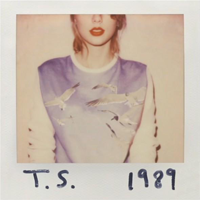The machine behind Taylor Swift

The machine behind Taylor Swift
Country music has sometimes ignored international markets. When Scott Borchetta signed up the 15-year-old Taylor Swift, however, he envisaged her winning fans thousands of miles beyond Nashville. “I was always fascinated by artists that could appeal globally,” he says. “So my goal with Taylor from the beginning was that she was going to be a global superstar.”
Almost a decade later, Mr Borchetta, president and chief executive of Big Machine Label Group, has very much achieved this ambition. Ms Swift, now 24, is now one of music’s biggest stars, having sold almost 30m albums of country-tinged pop, more than 6.5m of these outside the US. Her latest world tour, which involved nearly 70 North American performances, arrives in London for five arena shows next month, with a further night in Berlin. She is also nominated in four categories at next Sunday’s Grammy Awards.
“We started the label in 2005, and Taylor was my first signing, so that was a good day,” Mr Borchetta says, with some understatement.
The success of Ms Swift and other signings such as The Band Perry and Rascal Flatts has made the innovative Big Machine one of the most successful independent music groups in the US, at a time when the domestic market share of “indies” has risen to almost 35 per cent in spite of broader record company consolidation.
Mr Borchetta says: “We were able to attain momentum quickly, and to add great executives and great artists. We have three labels in the group, a publishing company and merchandising, and there’s a lot of other branding opportunities. But if we don’t have great music, nothing else matters.”
Born in Burbank, California, 51-year-old Mr Borchetta has the music business in his blood. He followed his father into record promotion, moving to Nashville and progressing to MCA Records, where he marketed such artists as Reba McEntire and Trisha Yearwood. Even when he moved to an executive role at another big label, DreamWorks, he continued a parallel passion for car racing, even becoming a Nascar truck champion. Off the track, Mr Borchetta has shown a similar boldness in the outspoken position he has taken on one of the most sensitive industry issues.
Most labels embrace, or at least accept, the now palpable swing away from track and album downloading towards streaming, via services such as Spotify and Deezer. Mr Borchetta, however, is wary that they might be cannibalising sales, and is not shy of acting accordingly. When Ms Swift’s most recent studio album Red was released in the autumn of 2012, it remained unavailable on streaming services for well over six months. The decision was described as “flat out stupid” on one technology website, and some of her fans, already immersed in streaming culture, were similarly upset.
The decision looked substantially less questionable when Red sold 1.21m copies in its first week in America alone, the biggest opening tally there for more than a decade. “I have real concerns with the biggest companies licensing their catalogues to any streaming service that switches on,” says Mr Borchetta. “I think that devalues music, and so it’s really important that record companies and content providers around the world make sure that we’re holding on to . . . value. It takes a lot of time and effort and money and talent to do this, and if we start giving it all away for fractions of pennies, we’re not going to be able to do it any more.”
Ms Swift’s pre-eminence in the market enabled her label to withhold those digital rights from the streaming services. Why rush to embrace Spotify when tracking company Nielsen SoundScan reports that digital sales of her tracks in the US now total 68m? Nevertheless, Big Machine’s decision to stream or not to stream is taken on a case-by-case basis. Its newer breakthroughs, such as the pop-leaning country duo Florida Georgia Line, have enjoyed massive US success in streams, as well as downloads and CD sales.
Mr Borchetta made another bold move in 2012, when he agreed a groundbreaking deal with the largest owner of radio stations in the US, Clear Channel. US radio stations have traditionally paid a royalty to songwriters and the music publishers that represent them for using their music, but performers received nothing, unless it was played online. Ms Swift writes all of her material, occasionally in partnership with other composers, so was earning the songwriter royalty but nothing as the recording artist.
The deal with Clear Channel means that Big Machine and its performers are now paid a proportion of the broadcaster’s advertising revenue when it plays their music through conventional radio too. Clear Channel’s concession on a point that has long been controversial for musicians was seen as a way of limiting the royalties incurred by its growing online business at the cost of paying more for its traditional broadcasting. Other label owners, including Warner Music, have since made similar pacts with Clear Channel to secure these performance royalties.
The trendsetting Big Machine, meanwhile, has persuaded other radio groups to follow Clear Channel’s example. “I believe most broadcasters know that performance royalties are part of the future, as more and more are or will be broadcasting digitally,” says Mr Borchetta. Some commentators have interpreted the more pop-flavoured recordings in Ms Swift’s output as an attempt to outgrow country music. Mr Borchetta denies the allegation, but makes no apologies for attempting to reach the widest possible audience with all of his artists.
“While her music has definitely become more worldly, she lives in Nashville and there’s always going to be a sense of that running through her music. I encourage her to make what she wants to make, so the next record could be anything from pure pop to bluegrass, who knows.”
Big Machine’s three labels enjoy the benefits of a distribution deal with Universal Music, whose chairman and chief executive Lucian Grainge praises Mr Borchetta effusively. “Scott is that rare executive who combines great creative instincts with the focus and discipline of a successful entrepreneur,” he says. But even as it straddles the divide between indies and majors, the company is the frequent subject of rumours that it will be sold. Mr Borchetta declares that this would only happen for “an outrageous sum which also absolutely guaranteed our independence operationally”. He adds: “I don’t see that offer coming in.”
Country roads lead overseas for Nashville signings
Scott Borchetta, Big Machine’s president and chief executive, says it became obvious to him in 2008 that cracking foreign markets would require a big commitment by the label and its star act, Taylor Swift. The realisation came when he visited London that year to strike an international distribution deal with Universal Music Group. Ms Swift has subsequently gone abroad at least three to four times a year.
That deal was overseen by Lucian Grainge, now chairman and CEO of UMG, and by Max Hole, now chairman and CEO of UMG’s international division. Mr Grainge says Mr Borchetta has “transformed Big Machine into a global music powerhouse”. As The Band Perry and Rascal Flatts prepare to return to Europe, Mr Borchetta is targeting an international audience for another Big Machine signing, a Southern rock band called the Cadillac Three.
“We have a mantra here that we’re right until proven wrong,” he says. “I want to give [international] listeners a chance to decide, and if they tell us, ‘You know what, we don’t like that,’ then OK, we’ve got it. I tell my artists all the time: ‘If you want to go just once, go on vacation. If you’re not going to come back, they’re going to forget about you.’”

- Alla negativa, opassande eller som i någon form attackerar Taylor, TSS eller läsare tas omedelbart bort.
- Intresserad av länkbyten? Kontakta TSS via mejl: taylorswiftsweden@hotmail.com.
- Det här är ingen plats för ovårdat språk - vi har unga läsare.
- Vi stödjer heller inte diskriminering, påhopp eller hat mot övriga kändisar och personer.
- Vill du tipsa om någon nyhet du sett som vi missat? Släng iväg en kommentar!
- Kommentera inte med länkar till olagligt läckt musik, film eller liknande. De kommer tas bort.
- Från och med Juni 2012 kan vi svara på era kommentarer här på TSS. Om du har frågor angående Taylor kan du alltså lämna en kommentar på sidan eller mejla oss på taylorswiftsweden@hotmail.com.
- Taylor kan inte svara på kommentarer då detta inte är hennes officiella sida.
- Vi är fyra tjejer som kämpar med att hålla hemsidan uppdaterad för er. Vi är alla studenter och gör vårt bästa. Tiden räcker inte alltid till och vi ber om ursäkt om uppdateringen inte alltid är på topp. Vi hoppas ni har förstående över detta!





































